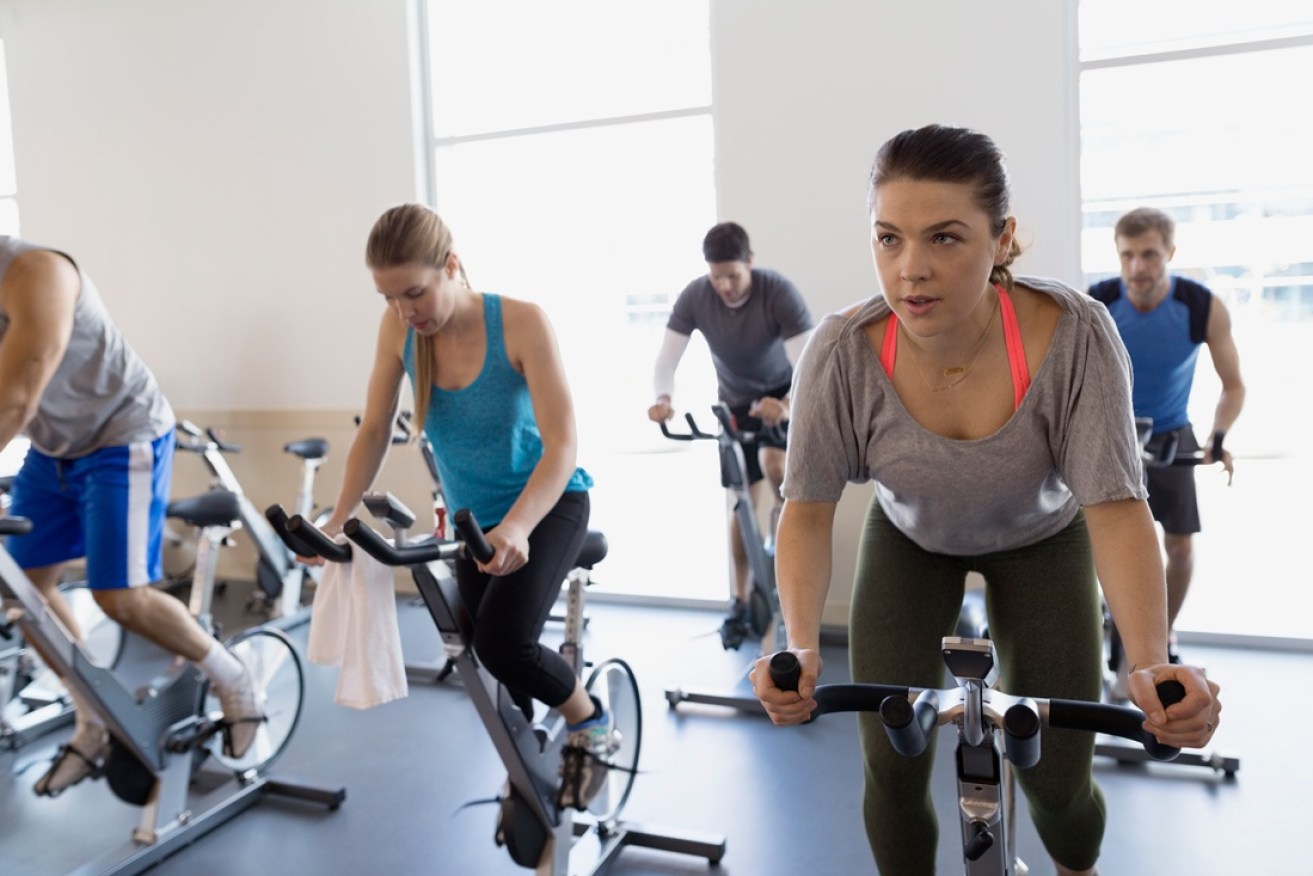The horrifying, life-threatening side effect of pushing exercise too hard

Spin classes are an excellent form of exercise, but beware of the dangers. Photo: Getty
Three years ago, Christina D’Ambrosio went to her first spin class, pedalling fast on a stationary bike to the rhythms of popular music as an instructor shouted motivation.
But Ms D’Ambrosio, who exercises regularly, found the hour-long class was harder than she anticipated. By the end, her legs were sore and wobbly.
“I thought my body just wasn’t used to that kind of muscle ache because it was my first class,” said Ms D’Ambrosio, a kindergarten teacher from Pleasantville, New York.
Over the next two days, her legs throbbed with excruciating pain, her urine turned a dark shade of brown, and she felt nauseated.
Eventually she went to a hospital where she was told she had rhabdomyolysis, a rare but life-threatening condition often caused by extreme exercise.
It occurs when overworked muscles begin to die and leak their contents into the bloodstream, straining the kidneys and causing severe pain.
After a two-week hospital stay, Ms D’Ambrosio was released and has since recovered.
Her case was highlighted in April in The American Journal of Medicine, along with two other cases of spinning-induced rhabdomyolysis treated by the same doctors.
The report noted that at least 46 other cases of people developing the condition after a spin class were documented in the medical literature, 42 of them in people taking their first class.
The report cautioned that the condition was very rare and not a reason to avoid high-intensity exercise.
But the authors said their goal was to raise public awareness so that people who begin a tough new workout program will ease into it to lower their risk of injury.
“I would never discourage exercise, ever,” said Alan Coffino, the chairman of medicine at Northern Westchester Hospital and a co-author of the new study.
“Spin class is a great exercise. But it’s not an activity where you start off at full speed. And it’s important for the public to realise this and for trainers to realise this.”
Rhabdo, as many experts call it, has long been documented among soldiers, firefighters and others whose professions can be physically demanding.
An Army study in 2012 estimated that about 400 cases of the condition are diagnosed among active-duty soldiers each year.

Exercising with someone who understands your fitness base can help you from pushing too hard. Photo: Getty
On occasion there have also been large clusters of college athletes hospitalised after particularly gruelling workouts.
But doctors say they are now seeing more of it among weekend warriors, driven in part by the popularity of high-intensity workouts.
Spinning in particular has gained a huge following; large chains like FlyWheel, SoulCycle and others report millions of rides and tens of millions in annual sales.
Studies show that high-intensity exercise offers myriad health benefits, but for a small subset of people, many of them beginners, rhabdo can crop up and quickly turn ugly.
Dr Todd Cutler, an internist at Weill Cornell Medicine and NewYork-Presbyterian and lead author of the study, said many patients all fit a similar profile.
“These are people who are not unfit,” Dr Cutler said.
“They are being pushed too hard, and they’re not trained to do this, and so they get really bad muscle trauma.”
There is some evidence that certain medications, including statins, stimulants and antipsychotic drugs, as well as genetic susceptibilities may contribute to the condition, said Patricia Deuster, a professor of military and emergency medicine at the Uniformed Services University of the Health Sciences.
But in general it occurs when people simply do not give their muscles time to adjust to an aggressive new exercise, experts say.
A little damage to muscles is a good thing because that stimulates them to grow and adapt to stress. But when the stress is too great, fibres are destroyed.
When that happens they break apart and release compounds that can be harmful to the liver, such as a protein called myoglobin, which causes brown or tea-coloured urine, a classic symptom of rhabdo.
– The New York Times








